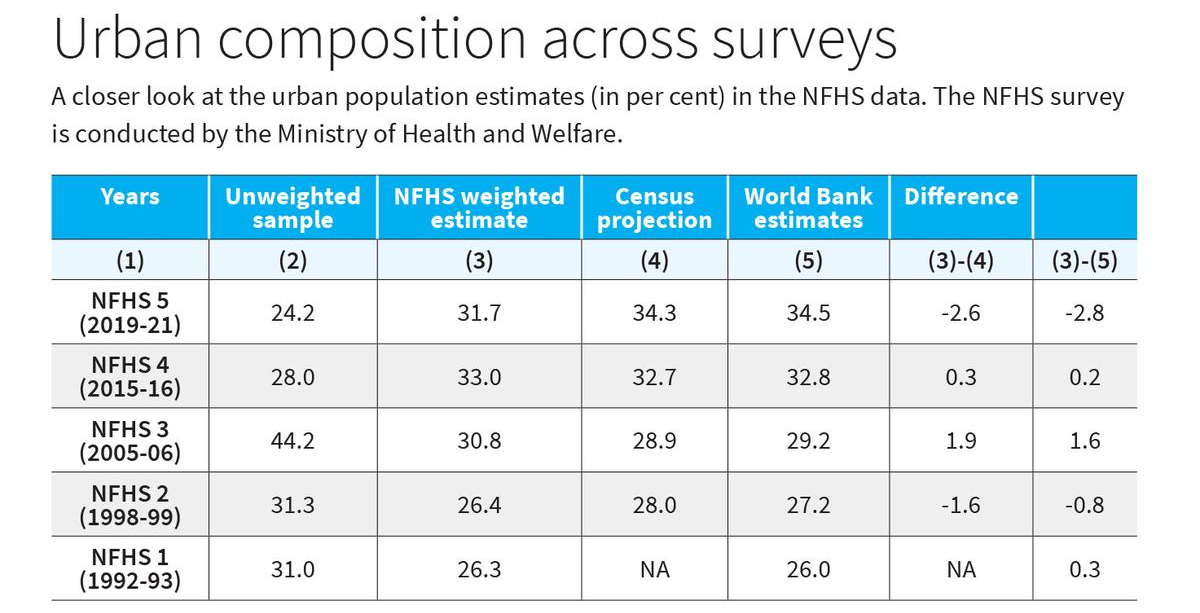Governance
Review of Methodology of National Surveys
- 25 Jul 2023
- 6 min read
For Prelims: National Statistical Organization, National Sample Survey (NSS), National Family Health Survey (NFHS), Periodic Labour Force Survey.
For Mains: Review of Methodology of National Surveys.
Why in News?
Recently, the Government of India has appointed Standing Committee on Statistics (SCoS) under the chairmanship of Pronab Sen, former Chief Statistician of India to review the methodology of the National Statistical Organisation (NSO).
- The new committee comes at a time when India’s statistical system is under criticism, especially from three members of the Economic Advisory Council to the PM (EAC-PM).
What is the Standing Committee on Statistics?
- About:
- The government has renamed and expanded the scope of coverage of the Standing Committee on Economic Statistics (SCES) formed in December 2019 as Standing Committee on Statistics (SCoS).
- The earlier SCES had 28 members and was mandated to review the framework for economic indicators pertaining to the industrial sector, the services sector and the labour force statistic including datasets such as the Periodic Labour Force Survey, the Annual Survey of Industries, Economic Census, etc.
- The new SCoS now will review all surveys.
- The government has renamed and expanded the scope of coverage of the Standing Committee on Economic Statistics (SCES) formed in December 2019 as Standing Committee on Statistics (SCoS).
- Members:
- The SCoS has 14 members, out of which there are four non-official members, nine official members and a member secretary.
- The total number of members in the committee can be 16 that it is extendable based on the requirement from time to time.
- Functions:
- To review the extant framework and to address the issues raised from time to time on the subject/ results/ methodology, etc. related to all surveys as brought before the SCoS by Ministry of Statistics and Programme Implementation (MoSPI).
- It will also advise on survey methodology including sampling frame, sampling design, survey instruments, etc. and to finalize tabulation plan of surveys; finalisation of survey results.
- The committee’s function is to design all data collection and data production efforts.
- It is to make sure that whatever data is collected in MoSPI, meets the standards of good statistics.
What is the Need for Review?
- Outdated and Archaic Methodologies:
- Some experts have raised concerns over the outdated survey methodologies used in national surveys, such as the National Sample Survey (NSS), National Family Health Survey (NFHS), and Periodic Labour Force Survey (PLFS), leading to systematic underestimation of India's development.
- They argue that this archaic methodology has failed to capture reality in the recent past as the “Indian economy has been incredibly dynamic in the last 30 years”.
- National Level Data is Crucial:
- National level data is a crucial resource for research, policymaking, and development planning. Thus, it is essential to examine the claims and counter arguments in light of existing evidence.
- For this purpose, the panel will be taking a closer look at NFHS data, which has been conducted by the Ministry of Health and Family Welfare for the last 30 years with the International Institute of Population Sciences (IIPS) as the nodal agency.
- National level data is a crucial resource for research, policymaking, and development planning. Thus, it is essential to examine the claims and counter arguments in light of existing evidence.
- Issue of Rural Bias:
- Critics argue that national surveys like NFHS exhibit a rural bias, overestimating the rural population due to heavy reliance on outdated Census data.
- However, a closer analysis of five rounds of NFHS data does not support this claim. Instead, evidence suggests instances of rural population underestimation in NFHS-3, with overestimation occurring in NFHS-2 and NFHS-5.
- NFHS-1 and NFHS-4 estimates closely align with World Bank estimates and Census projections, indicating random errors rather than systematic bias.
- Critics argue that national surveys like NFHS exhibit a rural bias, overestimating the rural population due to heavy reliance on outdated Census data.
How Can Such Errors Be Minimized?
- Although there are higher percentages of no-response in urban areas compared to rural areas, this does not indicate a systematic relation to rural or urban bias in estimation.
- Instead, careful assignment of sample weights can significantly correct errors and representation discrepancies.
- For instance, considering the unweighted percentages of the urban sample in NFHS 1, 2, 3, 4, and 5, appropriate sample weight assignment can address underrepresentation of both rural and urban populations.
Way Forward
- The Committee's primary objective should be to address concerns related to sample representation and minimize errors without completely overhauling the survey methodology.
- The focus should be on rectifying errors where they genuinely exist, ensuring accurate and reliable data for informed decision-making at the national level.
- By addressing concerns related to sample representation and minimizing errors, the committee can ensure that national surveys, such as NFHS, provide reliable insights into India's development and demographics.







